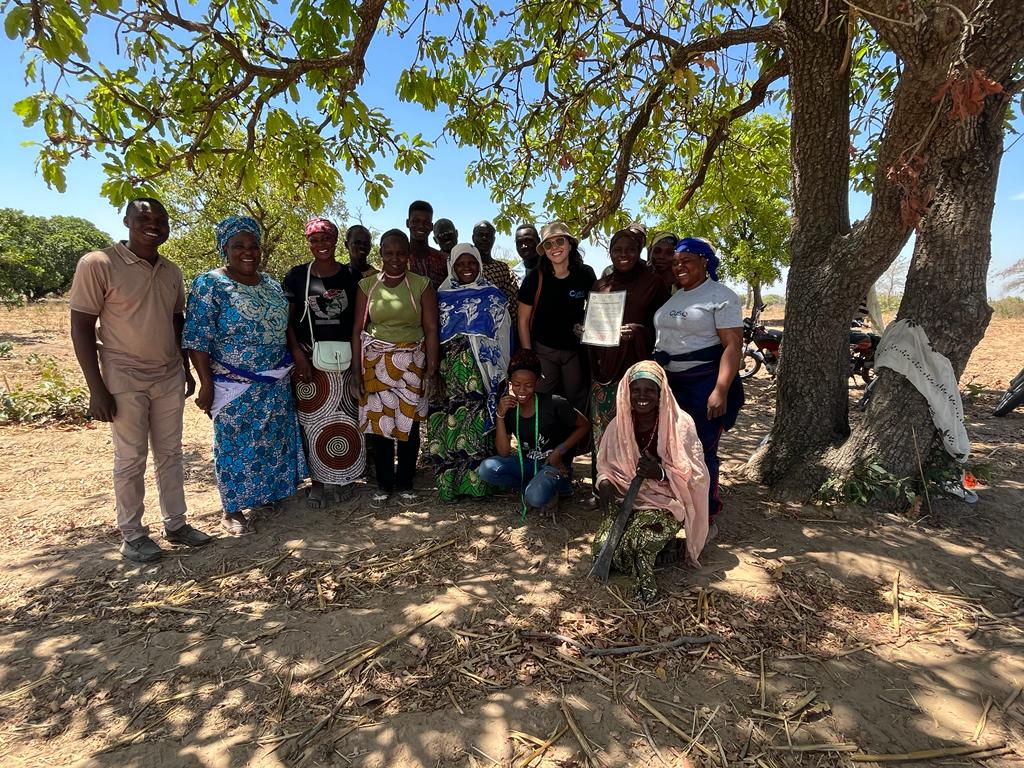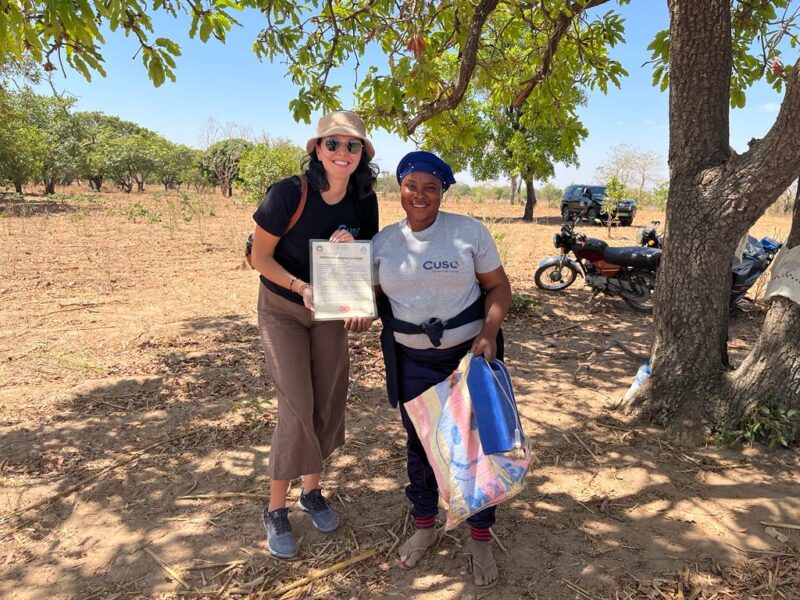Farming programs in Northern Benin aim to bring independence for women
Story

In Benin, women are often overlooked when it comes to land ownership. This leads to challenges when they try to farm so they can generate revenue for their families.
Cuso International is working hard to change this reality. With local partner Union des femmes élues conseillères communales (Union of women elected communal counsellor), the Projet de renforcement de la sécurisation foncière à travers la plantation d’arbres à buts multiples program aims to help women farmers gain knowledge and land ownership of their farms. Land ownership sometimes comes from a donation by husbands or brothers of the farmers. Other times the land is purchased from someone in the community.
In Sinendé, Benin, the project was divided into two phases. The first phase focused on training women about their rights regarding land ownership. Men were also invited to the training, as it important for them to support their wives, sisters, and mothers, and understand the importance of women gaining land rights.
Using the land, women are able to generate sustainable revenue for their families by selling their products. Some have planted karité trees to make shea butter, while others harvest dried cashews from their trees. Overall, five women were able to get the right to their land secured.
 “The women really appreciated Cuso International’s help,” said Laura Lortie-Maurel, Cuso International’s Gender Equality and Social Inclusion (GESI) specialist. “With the funds from the project the women were able to buy different seeds to help grow revenue.”
“The women really appreciated Cuso International’s help,” said Laura Lortie-Maurel, Cuso International’s Gender Equality and Social Inclusion (GESI) specialist. “With the funds from the project the women were able to buy different seeds to help grow revenue.”
The second phase of the project focused on teaching women farmers new techniques to help with irrigation in drought season. Climate change has made it increasingly difficult for farmers to predict weather. In the past, seasons were always the same, but droughts have become more common over the last few years. The drought season is extending and rainy season is unpredictable.
To help relieve these difficulties, the women learned how to use bio-pesticides to make a watering can that waters plants gradually.
“The work is to provide them with a revenue stream so they can sell their products reliably and, despite climate change and drought, use sustainable agricultural practices,” said Laura.
After the training, 100 per cent of the women saw an increase in production, making it easier for them to farm sustainably, and 80 per cent of the women incorporated bio-pesticides in their farming.
Help more women in communities like Sinendé achieve their dreams. Donate today.